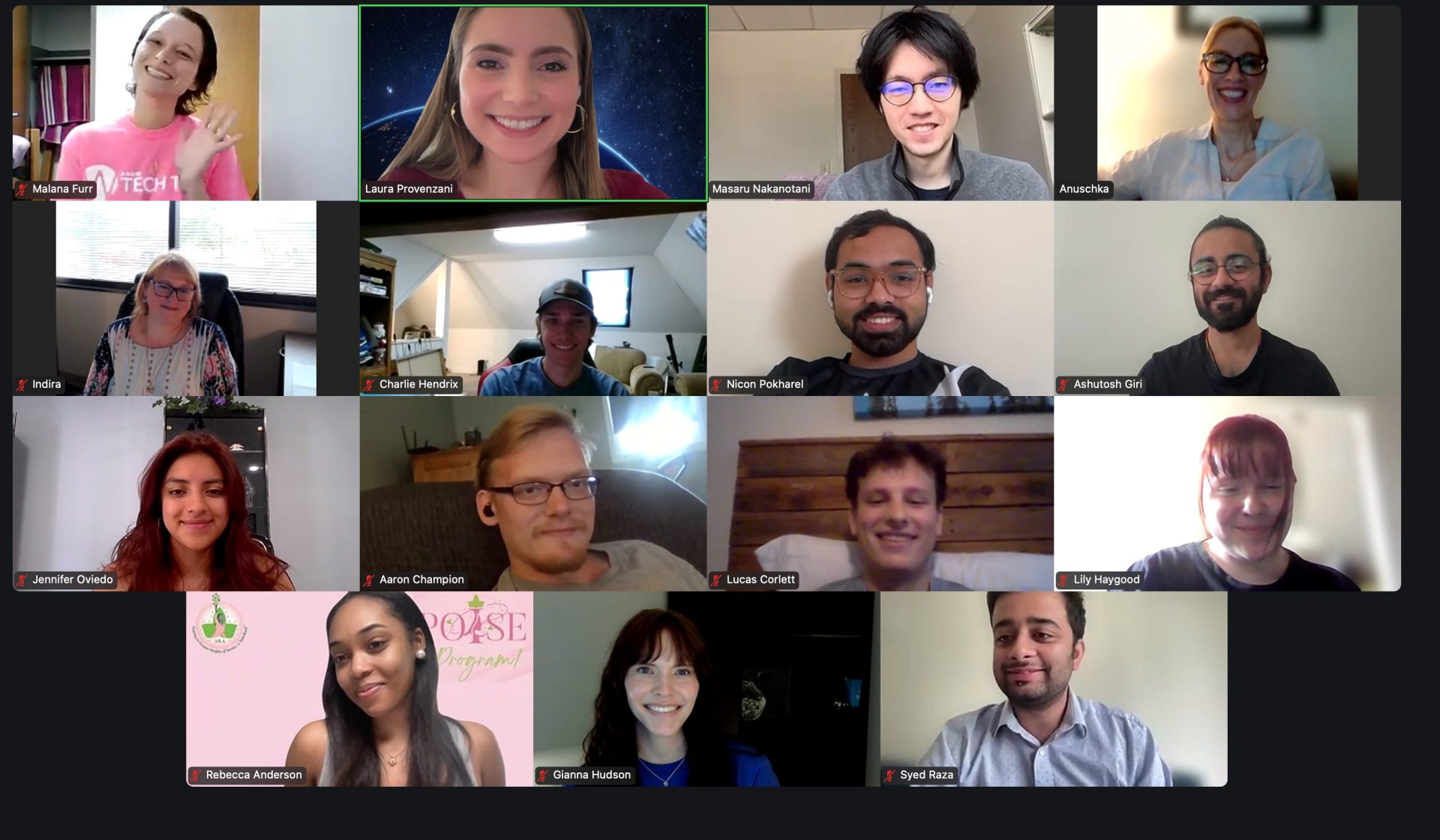Sixteen students explore the impacts of space weather at FTPP sponsored camp

Sixteen students from Alabama and Germany are currently preparing to engage in an intensive, multi-week program blending theory and practice during the International Space Weather Camp (ISWC) sponsored by Future Technologies & enabling Plasma Processes (FTPP), a statewide National Science Foundation grant that’s managed at The University of Alabama in Huntsville (UAH).
ISWC offers students a chance to explore space physics while addressing an urgent scientific and technological need. For many, the experience marks the beginning of a journey – one that could lead to groundbreaking discoveries and innovations in space science. Students discover how the sun influences space and Earth’s upper atmosphere and how those effects ripple through the technological systems that modern society depends on.
Highlighting the growing importance of protecting our technological infrastructure against solar-induced disruptions, space weather is an emerging field that has gained significant attention from the White House and top U.S. government officials.
Students in the ISWC program are gaining a deeper understanding of both the science and real-world relevance of space weather through lectures, hands-on experiments and immersive field activities. This year’s camp takes place at three locations: on the UAH campus in Huntsville Alabama, Orlando Florida, and at the DLR’s Neustrelitz site in Germany. These academic environments offer direct access to professionals and organizations shaping the future of space science.
From Curiosity to Career Path
For many students, this program sparks new academic interests or solidifies existing passions. One of this year’s participants, Lucas Corlett, says ISWC will help him envision new opportunities within the field.
“I first became interested in space weather through my studies in aerospace engineering, where I realized how critical space environment factors are for certain aerospace systems,” Corlett says.
“While I’m still new to the concept of space weather, I’m excited to deepen my understanding through this camp. This experience has opened my eyes to the possibility of pursuing graduate studies or a career in a field related to space weather.”
Empowering Tomorrow’s Leaders
ISWC would not be possible without the support of the local community, institutional partners and sponsors. Local organizations and vendors contribute in meaningful ways, from providing meals and transportation to hosting educational events and excursions that enrich the students’ experience. This year, the collaborative spirit of ISWC extended internationally. Anuschka Stott, a faculty member at UAH who is from Berlin, Germany, hosted a German lesson during the ISWC pre-meeting, further emphasizing the global scope of the camp and its educational reach. The camp will begin on June 28, 2025, with the first two weeks taking place in Germany, followed by two additional weeks on the UAH campus. Students will engage in a dynamic program that includes lectures, hands-on projects, excursions, and other immersive learning experiences.
ISWC underscores FTPP’s broader commitment to STEM education and the development of future scientific leaders, both locally and around the world. As global reliance on space-based technologies continues to grow, programs like ISWC are preparing the next generation of scientists, researchers and engineers.

